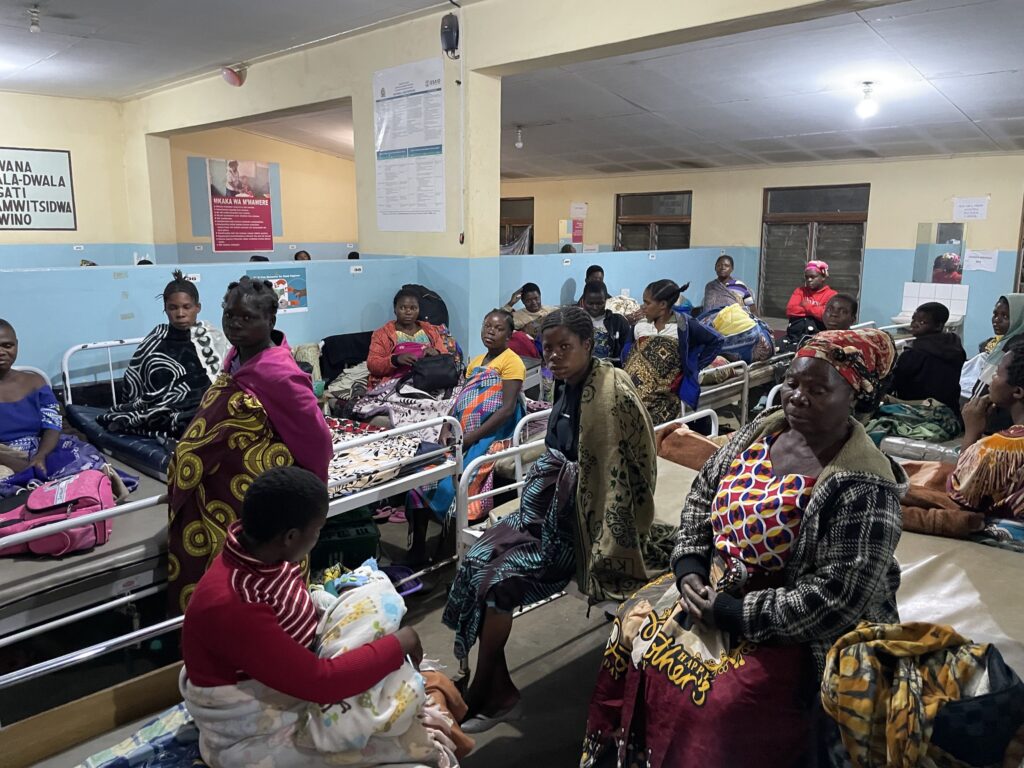Dedza, Malawi… Action for Progress and the team from the Malawi Project reached the district hospital in Dedza later than expected. It was already dark, and the expectant mothers were crowded into the maternity ward so tightly it was nearly impossible to move about or turn around. For these soon-to-be-mothers it was not surprising. If they had been here for the birth of another child, or as guardians for others, they were taking the overcrowding and lack of resources in stride. For the American team, however, it was something they could never have imagined, and for Action for Progress, it was all part of their reason for being.
The situation in Malawi hospitals is critical. Facilities are overwhelmed beyond anything one can imagine. Some are beyond their ability to even fulfill basic services. Much of the system was designed for a population that was less than half the current number, and in this border district the problem is compounded with people coming over from neighboring Mozambique for healthcare.
Meanwhile in the wards it is common to see patients laying on bamboo mats on the floor because there are no more beds. Surgical suites are short-staffed, and unable to keep up. Pharmacy shelves are bare of even the very basics, such as Tylenol or aspirin. On this particular night there are only 2 nurses and a small support staff to help in the delivery of the nearly 600 babies born each month in Dedza. The district has a catchment area of over 450,000 people, and the government does all it can to help them. It’s easy to criticize, find fault, or point fingers, but were you to walk in a public official’s shoes to the next budget meeting, you will quickly find you don’t have the money to fill all the needs. Everything seems to come up short.
The head nurse is at the door to greet us. Surprisingly she is wearing a heavy winter coat to ward off the night air. The Dedza district is the highest in elevation, and coldest in temperature in the nation. On this night the temperature has fallen below 50 degrees. In the unheated wards, and with inadequate bed coverings brought from home, it is far too cold for a newborn. Severe consequences can occur if the newborn is not kept warm, and the cold can be life threatening. The head nurse appealed to the team to help her keep them warm.
Individual women, and the small groups in the U.S. who are making baby packs, can declare a victory on this night. On this cold night in Dedza, Malawi, a small district hospital, far too crowded and short of supplies has received over 100 baby packs for expectant mothers. The relief and excitement, when the mothers-to-be learn what is in the packs, is much greater than what would seem to be the excitement and appreciation for such a simple thing in the In the states the critically needed items for the birth of baby are so readily available no one gives it a second thought. In Malawi they can mean life and a successful birth. For more information on getting involved in the Malawi Project’s Baby Pack program write to: info@malawiproject.org

